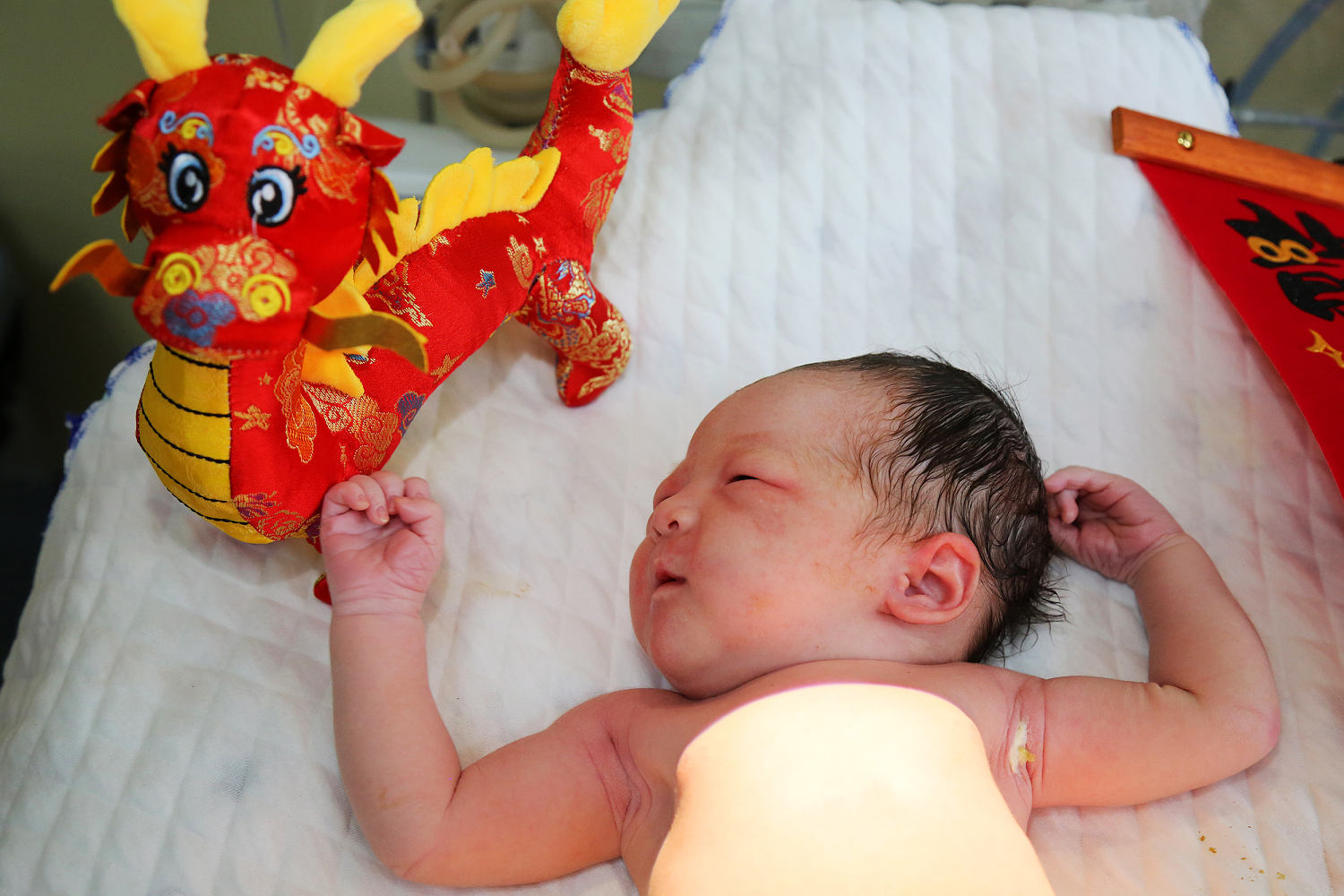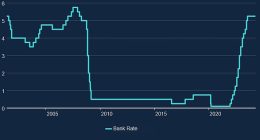The Chinese Year of the Dragon is widely perceived in the Asia-Pacific region to be an auspicious year to have a baby — but it hasn’t meant well for the country’s declining population.
“Dragon babies” are expected to be successful in their careers and bring blessings to the family, according to Jacelyn Phang, feng shui master at Yuan Zhong Siu. In this zodiac cycle, those born between Feb. 10, 2024, and Jan. 28, 2025, will be classified as “Dragon babies.”
“People aspire to have their babies born in the dragon year believing that children will inherit extraordinary leadership traits and be able to gather influential power and achieve great personal success,” Phang told CNBC.
More from CNBC
While people in China also hold these beliefs, birth rates in the country have actually fallen during the “Dragon Years.”
Compared with the preceding years in the zodiac calendar, birth rates in China fell by more than 4% during 1988 and 2000, and by 9% in 2012, according to the country’s statistics bureau. Birth rates refer to the number of babies born in a year per 1,000 people.
Contrastingly, “there has been a discernible spike in birth rates in the past [Dragon Years] in other parts of Asia,” said Erica Tay, director of macro research at Maybank.
For instance, Singapore’s birth rates rose by 21% in 1988, and by 8% in 2000 and 2012.
Asian folklore, however, may not be able to do much for China’s falling birth rates, which could continue to drop “quite precipitously,” Tay warned. China’s birth rates have seen a secular decline, falling to 6.39 per thousand in 2023 from 22.37 in 1988.
China is unlikely to experience a distinct boost in births this year, largely due to the country’s high youth unemployment and economic turmoil, according to Tianchen Xu, senior economist on China at the Economist Intelligence Unit.
In 2021, China scrapped restrictions on the number of children each household can have, in a move aimed at boosting the country’s birth rate.
However, the birth rate in 2022 fell to 6.77 per thousand people compared with 7.52 in 2021 and 8.52 in 2020.

Excluding students, 14.9% of people ages 16 to 24 in China were unemployed in December, according to monthly data. In comparison, China’s broader urban unemployment rate came in at 5.1% for the same month.
Without securing a stable job and in the absence of steady income, young people will not have the confidence nor financial stability to have children.
“They would tend to delay any of these big decisions like marriage and bearing children till their economic situation becomes better,” Xu told CNBC. “Eroding household wealth will negatively impact total income.”
After being overtaken by India in 2023, China is now the second-most populous country.
The EIU told CNBC that the number of births could see a “small rise” in 2024 and stand at 9.7 million — just a 700,000 increase from the year before.
The firm predicts births will peak in 2025 at 11.57 million, before dropping to an average of 10.2 million between 2026 and 2035, compared with 15.7 million from 2011 to 2020.
China’s marriage rates have also dwindled as young couples continue to prioritize their careers over starting a family. And having children out of wedlock is a big “no” in many Asian societies.
According to China’s statistics bureau, there were only 6.8 million registered marriages in 2022, a 10.5% decline from the year before and a 16% drop from 2020.
“I think the downtrend is still going to continue, despite a short blip,” Maybank’s Tay said. “As Asian societies become more affluent, people just tend to have fewer babies as people get more educated and focused on their careers … We’ve observed this across almost all advanced Asian countries.”
Women make up around 45% of China’s work force, higher than developed Asian economies such as Singapore and Japan, World Bank data shows.
In Singapore, it’s costs vs. beliefs
Singaporeans also believe that it is auspicious to give birth during the Year of the Dragon, so much so that the country’s prime minister has encouraged couples to expand their families.
“Now is as good a time as any for young couples to add a ‘little dragon’ to your family,” Prime Minister Lee Hsien Loong said Friday in his Chinese New Year message.
“I hope my encouragement prompts more couples to try for a baby, although I know that the decision is a very personal one,” Lee said.
Yuan Zhong Siu’s Phang said she saw a 15-20% increase in auspicious baby naming services in the Year of the Dragon, and a 10-20% rise in consultations for auspicious wedding dates.
Birth rates are likely to see a “small bump” in 2024, but will either sustain or continue to decline in the coming years, Bussarawan Teerawichitchainan, associate professor and co-director of the department of sociology and anthropology at the National University of Singapore, told CNBC.
Birth rates hit a record low in 2022, falling by 8% from 2021, on the back of a growing affluent society, higher prices and a growing desire for a “dual income, no kids” life, economists said.
The city-state was ranked as the most expensive city in 2022 by the EIU’s annual survey.
Birth could increase this year, “but the magnitude of this increase might even be smaller,” warned Tan Wen Wei, analyst at the EIU.
“Superstitious parents may still encourage their children to put in extra effort and try for a baby during the dragon year. But unlike in the past where zodiac superstitions might have been the primary factor in a couple’s decision to have a child, it acts more as a catalyst or motivating factor today,” Wei told CNBC.
Source: | This article originally belongs to Nbcnews.com










